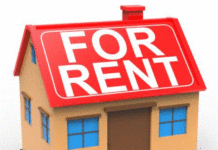Through this blog we have documented various forces that affect buy and hold real estate investors. At the most fundamental level and because shelter is an essential human need, basic supply and demand principals have the biggest influence. Other forces include wage growth, unemployment, interest rates, overall macroeconomic health and public policy.
The United States will soon usher in a new executive leadership team to govern the country. In this article, we will examine what public policy shifts could be coming and what the ramifications of them would be.
In our article The Power Of The Buy & Hold Model: A Team Of 5 All Stars, we documented five strong benefits of owning leveraged rental properties for the long term. We will look at potential policy changes through the lens of these benefits.
1) Cash Flow
The cash flow of your rental property is a simple equation calculated as Rental Income – Expenses. As of this typing California, New York, New Jersey, Maryland, Oregon and the District of Columbia have localities in which some form of residential rent control is in effect. Currently, 36 states preempt local governments from adopting rent regulation laws.
Will the new administration support and proliferate rent control initiatives more broadly which could place constraints on the income side of the cash flow equation? This website outlines the new administration’s views on housing which includes earmarking $640B over 10 years for housing related initiatives.
While there could be some localized policy shifts and the administration makes reference to expanding Section 8 benefits and creating a new tax credit for renters, it is very unlikely that the new executive leaders will have a big effect on local rent control policies. On the expense side of the equation, while pandemic recovery related initiatives could lead to increased taxes, including property taxes, (local governments will be looking for ways to increase revenue), it does not feel like any federal initiatives stand to influence the monthly costs of being a rental home investor.
2) Appreciation
The supply/demand balance drives appreciation. The new administration plans to enact policies that will influence both.
From the demand side, they plan to provide first time home buyers with an advance-able tax credit of up to $15,000. The goal of this is to help new buyers and new families start building wealth through homeownership. Greater demand will be a force to drive up prices in the affordable home segment.
Additionally, the new administration is likely to be much more flexible on immigration. More people entering the country means the need for more housing.
On the supply side, the new administration plans to establish a $100 billion housing fund to construct and upgrade affordable housing. (Note: the plan is for some of this to be paid for by raising taxes on corporations and large financial institutions as well as instituting fees on firms with over $50 billion in assets). The new administration plans to eliminate local and state regulations (red tape) that makes it challenging to construct new housing in many areas where it is needed. Greater supply, if constructed at large scale, will be a force to resist continued price appreciation.
It’s hard to speculate what the net of these initiatives will be and of course these initiatives do not exist in a vacuum. Interest rates, migration trends, job growth and other variables are a major part of the mix as well. It will come down to what type of housing is involved (multi or single family) along with the speed and scale at which new inventory comes online.
3) Tax Sheltered Cash Flow & Other Tax Benefits
In our article 3 Ways Real Estate Investors Can Have Their Cake And Eat It Too we reference the power of depreciation. Despite the fact that in most cases, real estate appreciates over time, the government allows investors to depreciate their rental properties. The “phantom loss” created increases the value of rental income because it is not taxed in the same way that other earned income is taxed. Disruption to this benefit would be a meaningful hit to the buy and hold model. That being said, there does not appear to be any signs that the new administration would target this policy. Remember, one of the reasons that the government has tax policies such as depreciation is to incentivize the private sector to provide society with affordable housing to lessen the government’s burden to do the same.
The biggest policy at risk at this point appears to be the 1031 exchange law. The 1031 policy allows investors to sell property without having to recognize and pay capital gains taxes as long as they use the proceeds to buy a “like kind” investment. The new administration has a $775 billion “caring economy” plan focused on bolstering child care services and services for the elderly. There are strong indications that this will be funded in large part by eliminating the 1031 exchange.
The 1031 is a great benefit for buy and hold investors as it provides flexibility with exit strategies. Losing this benefit could deter existing investors from selling and potentially deter newcomers from entering the game.
While losing this benefit reduces options for buy and hold investors, the reality is that the nature of the buy and hold strategy is to do just that, “hold”, and not sell properties. Additionally, there are some other ways to potentially avoid a large tax hit when selling properties such as using seller financing.
Nevertheless, there are a lot of investors who would be disappointed if and when the 1031 exchange went away.
4) Mortgage Principal Pay Down
There are no anticipated policy changes on the radar that would affect the mortgage principal pay down benefit. As long as investors borrow right and tenants pay their rent, this benefit cruises along with investor net worth getting credited every month by the amount their mortgages are paid off with rent checks. The greatest risk to this benefit would be if a spike in Covid 19 cases caused additional economic shutdowns resulting in moratoriums that lessened the urgency for renters to pay rent.
5) Inflation Hedge
Savvy investors invest in real estate because they know that cash sitting in the bank earning less than 1 percent (norm today) is actually losing value due to inflation.
Inflation drives up rents and property values for investors while debasing their debt. Many believe that the massive stimulus packages that the government has enacted due to the Coronavirus will inevitably drive inflation. The new administration appears to generally be supportive of additional stimulus which, in theory, would increase the likelihood and degree of future inflation.
Summary
Whenever there are leadership transitions in any organization/team/government, one naturally wants to understand what will change and how they will be individually affected. How will the wealth building game be altered with the new administration taking over?
I think it’s fair to say that the new administration is markedly different than the one it will replace. I am a staunch believer in the buy and hold model as a means to build wealth over the long term. A big reason why is the stability and predictability of the model. It fundamentally comes down to the 5 benefits mentioned above vs the amount of vacancy and maintenance experienced. Despite a thoroughly different set of leaders taking over I don’t anticipate much disruption to buy and hold investors.













